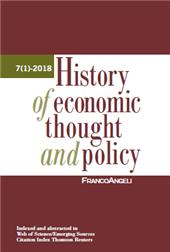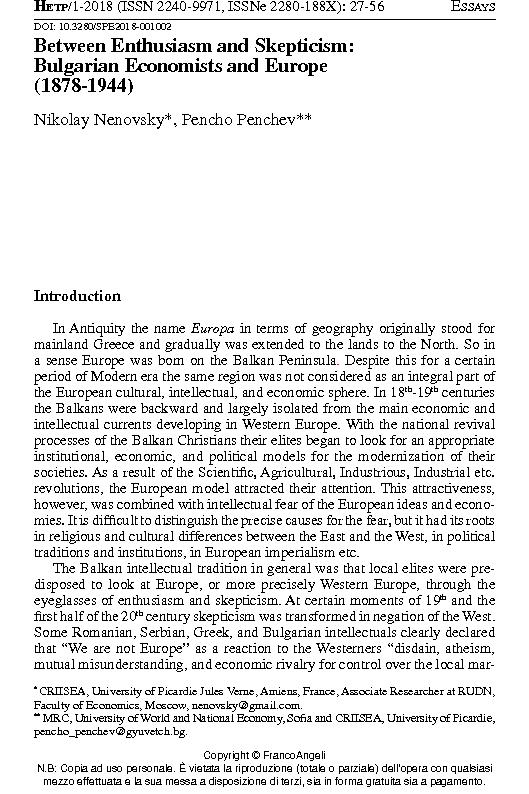Between Enthusiasm and Skepticism : Bulgarian Economists and Europe (1878-1944)
27-55 p.
In this article, we present the discussions of Bulgarian economists as regards the strategic development opportunities of the Balkans and Bulgaria in particular within Europe. We focus on the integration efforts of Bulgaria within an economic unit larger than national market during the decades of the so-called first Bulgarian capitalism. Those are the years since the Liberation of Bulgaria from the Ottoman rule in 1878 to the forced imposition of the Communist regime in 1944. The public expenditures on bureaucracy, army, foreign policy etc. increased after Bulgaria's Liberation. The integration efforts on Bulgarian side were an attempt to ameliorate some negative consequences of the lost "public goods" of being part of the Ottoman Empire. This was the main source of the Bulgarian economists' pro-European enthusiasm. However, the enthusiasm was combined with skepticism.
The main fuel of skepticism came from the fear that industrially developed countries of Central and Western Europe would not allow the industrialization or modernization of the Bulgarian economy. The presentation follows the historical stages of development of the Bulgarian economy and society. It starts from the late pre-liberation era goes through the late 19th and early 20th-century ideas for Balkan economic integration, the World War I, and the Great Depression effects, and finishes with the Second World War. [Publishers' text].
Ist Teil von
History of Economic Thought and Policy : 1, 2018-
Artikel aus derselben Ausgabe (einzeln erhältlich)
-
Informationen
ISSN: 2280-188X
KEYWORDS
- Balkans Integration, Bulgarian Economic Thought, History of Bulgarian Economic Policy



